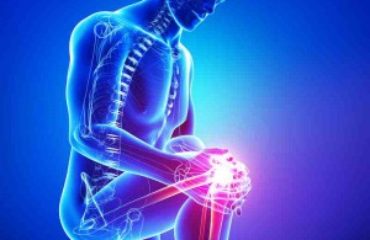The most flexible joint, the shoulder, is also the most vulnerable due to repetitive motion or trauma. The most common shoulder conditions include rotator cuff tears, shoulder instability, labral tears and clavicle fractures among others. Modern shoulder treatments can provide lasting relief from shoulder pain. The leading shoulder surgeons can provide specialist shoulder treatments. Dr. Adam Farber is one such shoulder surgeon at Phoenix Shoulder and Knee Clinic who is apart from being Board Certified and Fellowship trained in sports medicine.
Dr. Farber explains the top causes of shoulder pain and treatments.
ROTATOR CUFF PATHOLOGY
The rotator cuff functions to move the shoulder in certain positions and to help stabilize the shoulder. Tears of the rotator cuff may occur after an acute traumatic episode, such as a shoulder dislocation or overuse and wear and tear. Patients report a history of gradually worsening shoulder pain which gets worse with certain movements.
Shoulder surgeon, Dr. Farber, of Phoenix Shoulder & Knee clinic may perform cutting edge arthroscopic surgery to reattach the torn rotator cuff tendon to the bone of the humerus. In patients with partial tears, typically a conservative treatment approach including medications, physical therapy, and possibly a steroid injection is often recommended.
SHOULDER INSTABILITY
Shoulder instability occurs when the head of the upper arm bone slips either partially out of the socket (subluxation), or comes completely out of the socket (dislocation). Shoulder instability usually occurs due to a sudden traumatic episode. Pain, numbness, tingling and deformity of the shoulder are the usual symptoms.
For most patients, non-operative treatment is recommended that includes a sling, rest, followed by a course of physical therapy, and gradual return to activities. If that doesn’t help, minimally invasive arthroscopic surgery may be performed by Dr. Farber, one of the best shoulder surgeons in Phoenix.
LABRAL TEARS
Patients with labral tears typically complain of shoulder pain in the front of the shoulder, deep within the shoulder, or in the back of the shoulder. The pain is often worse with overhead arm activities or throwing. Painful clicking or popping may also be experienced by patients with labral tears.
In patients with an acute traumatic injury and mechanical symptoms or patients who fail a course of non-operative treatment, surgery is often recommended to repair the torn labrum. Dr. Farber, an experienced shoulder surgeon in Phoenix, performs this procedure using the latest cutting-edge minimally invasive arthroscopic techniques.
To schedule an appointment with highly skilled and experienced shoulder surgeon in Phoenix, Dr. Adam Farber, call 480-219-3342


